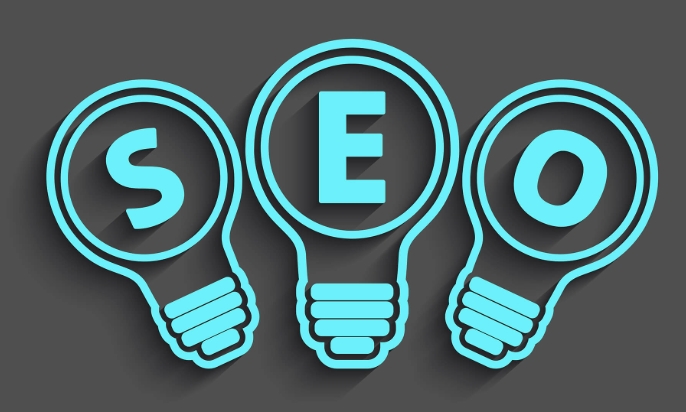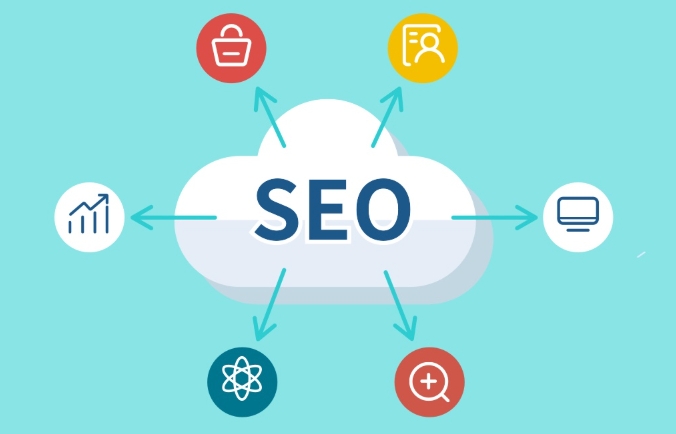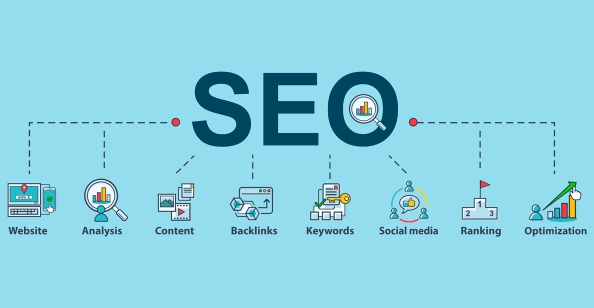SEO for beginners focuses on creating quality content, optimizing pages, and building basic authority. Start with keyword research using tools like Google Keyword Planner or autocomplete to find long-tail keywords and competitor insights without stuffing content. Optimize pages by crafting clear title tags, meta descriptions, structured headings, clean URLs, and optimized images. Create valuable content that answers real user questions using tools like AnswerThePublic while keeping it scannable and updated. Build basic backlinks through local directories, guest posts on legitimate sites, and sharing content on social media without buying links. Consistency matters more than complexity in a beginner’s SEO strategy.

SEO can feel overwhelming when you're just starting out, but the basics are actually pretty straightforward. A good SEO strategy for beginners focuses on doing a few key things well: creating quality content, optimizing your pages for both users and search engines, and building some basic authority over time.

Here’s how to get started the right way without getting lost in the noise.

Start with keyword research that makes sense
You don’t need to chase high-volume keywords right away. Instead, focus on finding topics and phrases your audience is already searching for—ones that match what you offer.
- Use tools like Google Keyword Planner, Ubersuggest, or even just Google’s autocomplete feature to find ideas.
- Look for “l(fā)ong-tail” keywords (like “best hiking boots for flat feet”) instead of broad terms (“hiking boots”). They’re easier to rank for and often more targeted.
- Check what your competitors are ranking for. Sometimes they’ll be targeting less obvious phrases that are worth going after.
The goal isn’t to stuff your content with keywords—it’s to understand what your audience wants and build around that.

Optimize your pages so Google knows what you're saying
Once you’ve got your keywords, it's time to put them to work. On-page SEO means making sure your content and HTML elements clearly tell Google—and readers—what your page is about.
Here’s what to focus on:
- Title tags and meta descriptions: These show up in search results. Make them clear, relevant, and include your main keyword if it fits naturally.
- Headings (H1, H2, etc.): Use one H1 per page (usually the title), and structure subheadings logically. This helps both readability and SEO.
-
URL structure: Keep URLs short and descriptive. For example:
yourwebsite.com/best-hiking-bootsinstead ofyourwebsite.com/p=1234. -
Image optimization: Use descriptive file names and alt text. If you have a photo of hiking boots, name it something like
trail-masters-hiking-boots.jpgand describe it in the alt tag.
This part of SEO isn’t flashy, but it’s where a lot of people drop the ball. Do this right, and you’re already ahead of many small sites.
Create content that answers real questions
Google rewards content that satisfies user intent. That means writing not just about a topic, but helping people solve a problem or learn something useful.
Some practical tips:
- Answer common questions in your niche. Tools like AnswerThePublic or even Quora can show you what people are asking.
- Keep paragraphs short and scannable. Most people skim online, so bullet points and headings help.
- Update older posts when needed. Evergreen content should stay fresh, especially if facts or best practices change.
It’s better to have a few great pieces of content than dozens of half-baked ones. Quality builds trust—with both users and Google.
Get some basic backlinks without stressing too much
Backlinks are links from other websites to yours. They’re important, but as a beginner, you don’t need to go crazy trying to get them.
Here are realistic ways to start:
- Reach out to local business directories or community sites and see if they’ll list you with a link.
- Guest post on smaller blogs or communities in your niche—just make sure the site is legitimate.
- Share your content on social media and forums where your audience hangs out. It won’t directly boost SEO, but it can lead to natural links over time.
Don’t buy links or use shady tactics. Start slow and focus on earning them through value.
That’s basically the foundation of a beginner-friendly SEO strategy. It doesn’t require fancy tools or deep technical knowledge—at least at first. Just focus on understanding what your audience wants, giving it to them clearly, and making sure Google can find and understand your content.
Most of the time, consistency beats complexity.
The above is the detailed content of What is a good SEO strategy for beginners. For more information, please follow other related articles on the PHP Chinese website!

Hot AI Tools

Undress AI Tool
Undress images for free

Undresser.AI Undress
AI-powered app for creating realistic nude photos

AI Clothes Remover
Online AI tool for removing clothes from photos.

Clothoff.io
AI clothes remover

Video Face Swap
Swap faces in any video effortlessly with our completely free AI face swap tool!

Hot Article

Hot Tools

Notepad++7.3.1
Easy-to-use and free code editor

SublimeText3 Chinese version
Chinese version, very easy to use

Zend Studio 13.0.1
Powerful PHP integrated development environment

Dreamweaver CS6
Visual web development tools

SublimeText3 Mac version
God-level code editing software (SublimeText3)

Hot Topics
 Are we becoming less curious about SEO?
Jul 07, 2025 am 09:12 AM
Are we becoming less curious about SEO?
Jul 07, 2025 am 09:12 AM
I noticed that a strong comment from Google’s VP of Search, Hyung-Jin Kim, at SMX Next in November 2022 has largely gone unnoticed by the SEO community up to now.He stated (my emphasis):“E-A-T is a template for how we rate an individual site. We do i
 What we're seeing a week into the Google March 2024 core and spam updates
Jul 07, 2025 am 09:16 AM
What we're seeing a week into the Google March 2024 core and spam updates
Jul 07, 2025 am 09:16 AM
We are now just about a week into the Google March 2024 core and spam updates, and boy, has it been busy. In that time, we have seen search ranking volatility, some related to the algorithmic updates and some related to Google issuing manual actions
 Google AI overviews launch in UK
Jul 02, 2025 am 10:07 AM
Google AI overviews launch in UK
Jul 02, 2025 am 10:07 AM
Google’s AI overviews are beginning to appear in search queries for a “small slice” of logged-in users in the UK. Google’s Search Generative Experience has been in testing as a Labs experiment in the U.S. since May 2023. SGE h
 Bing Deep Search is officially live for all users
Jul 05, 2025 am 09:32 AM
Bing Deep Search is officially live for all users
Jul 05, 2025 am 09:32 AM
Bing Deep Search, an optional generative AI feature designed to assist users with complex questions that lack straightforward answers, is now fully available to all users. Microsoft has announced that the Deep Search function within Bing Search can n
 Google starts testing AI overviews from SGE in main Google search interface
Jul 05, 2025 am 09:33 AM
Google starts testing AI overviews from SGE in main Google search interface
Jul 05, 2025 am 09:33 AM
Google is currently trialing AI overviews directly within the standard Google Search results, even for users who haven't signed up for the Google Search Generative Experience (SGE) Labs feature. According to a Google spokesperson speaking to Search E
 Is ChatGPT the Google Search killer we've been expecting?
Jul 05, 2025 am 09:14 AM
Is ChatGPT the Google Search killer we've been expecting?
Jul 05, 2025 am 09:14 AM
AltaVista. Lycos. Yahoo. Once upon a time, these were the most popular search engines in the world. Then along came Google. It did Search better. Since around 2002, Google has been the search engine – and its dominance has only grown year after
 Mikhail Parakhin, head of Microsoft Bing Search and Microsoft Advertising steps down
Jul 05, 2025 am 09:15 AM
Mikhail Parakhin, head of Microsoft Bing Search and Microsoft Advertising steps down
Jul 05, 2025 am 09:15 AM
Mikhail Parakhin is leaving his position as the head of Bing Search and Microsoft Advertising, potentially moving into a different role within the company. “Mikhail Parakhin, who leads the company’s Bing search engine and advertising divisions, will
 4 keys to SEO and PPC collaboration in 2024
Jul 06, 2025 am 09:27 AM
4 keys to SEO and PPC collaboration in 2024
Jul 06, 2025 am 09:27 AM
Every year brings a ton of change in digital marketing. In each of my 10 years in the industry, I’ve noticed that the beginning of the year can mark a surge in calls for SEO and PPC to work together.The difference in 2024? There’s an elephant in the






